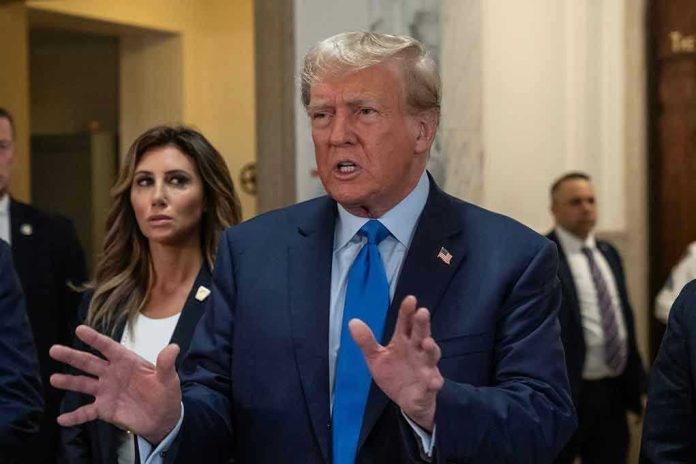
A bat-wielding intruder turned a quiet legal office into a crime scene, raising urgent questions about the safety of public figures—and who might be next.
Story Snapshot
- Alina Habba’s office was ransacked after a man with a bat was denied entry earlier in the day.
- Sources confirm the attack was violent and targeted.
- Security and protocol failures are now under scrutiny.
- The incident has sparked debate over the risks facing high-profile attorneys.
Violence Strikes at the Heart of Legal Leadership
Alina Habba, Acting U.S. Attorney for New Jersey, became the center of a storm when her office was violently vandalized by an individual who had attempted to enter the building earlier that day with a baseball bat. Security staff denied his entry, yet the day ended with Habba’s workspace ransacked and sources describing the attack as both targeted and aggressive. This incident has sent shockwaves through legal circles, prompting leaders to reassess the threats lurking just outside their office doors.
For many, the story isn’t just about one office or one official. It’s about the vulnerability that comes with visibility. When a public servant’s workplace is violated, it isn’t only property that’s damaged—confidence in institutional safety takes a hit, too. The fact that the perpetrator was initially turned away but managed to return and wreak havoc signals a concerning gap in security protocols. The legal world, often seen as insulated by its procedures and prestige, now faces a new reality where physical threats are more than hypothetical.
Security Protocols Under a Microscope
The ransacking of Habba’s office has forced a reckoning over how public offices protect their personnel. Sources close to the investigation suggest that existing security measures may have failed to anticipate or prevent a persistent threat. The attacker’s ability to return after being denied entry exposes a troubling flaw: deterrence at the door isn’t always enough. Security experts are now asking whether law offices—particularly those representing the government—have become soft targets in a climate of rising hostility.
Staff members are reportedly shaken, and many are wondering what could have been done differently. Was there a missed opportunity to escalate the threat assessment? Did communication break down between security and law enforcement? These questions are not academic—they are immediate, pressing, and demand answers before the next incident occurs.
Public Figures Face New Risks
Habba’s experience highlights a broader issue confronting attorneys who take on high-profile, sometimes controversial cases. The intersection of law, politics, and public scrutiny creates a volatile environment where threats of violence can materialize without warning. For policymakers and security professionals, the attack serves as a wake-up call: visibility brings risk, and risk must be managed proactively, not reactively.
Conservative voices have long warned of the dangers facing officials who challenge entrenched interests or pursue difficult cases. This event adds weight to their concerns, underscoring the need for robust protections and clear protocols. It’s not merely about safeguarding property; it’s about defending the integrity of the legal system itself. Ensuring that attorneys can do their work without fear is foundational to the rule of law.
Sources:
Suspect accused of ransacking US attorney Habba’s office arrested












